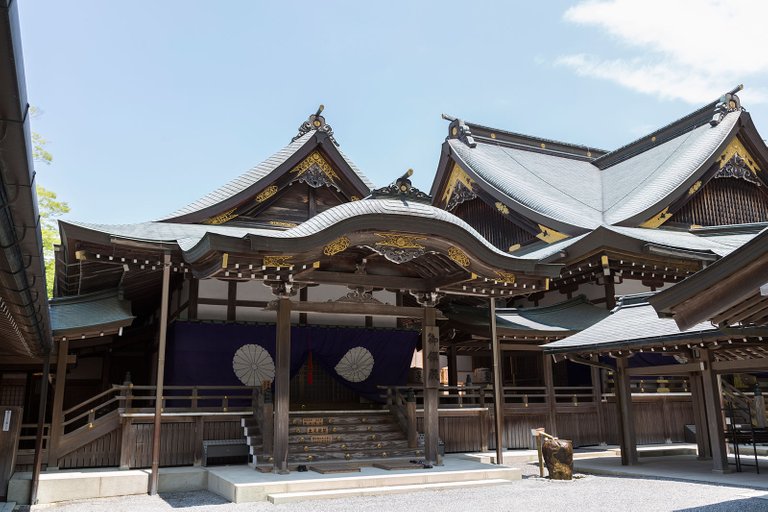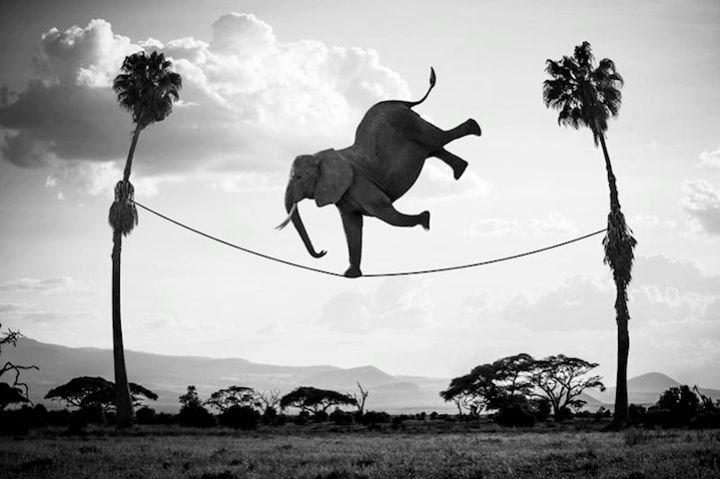
Deep in the Japanese countryside, a temple both ancient and recently built has posed a philosophical puzzle for centuries- one directly related to all of our lives.
Every 20 years, this wooden temple is torn down and put back together again. The entire community pitches in. The young, elders and everyone in between. The community has been at it for a long time, about 1,300 years.
So, is it a twenty year old temple? Or a thousand year old one?

Is it still the same temple? Why honor it if it’s not the same one? Does it truly deserve the glory it inherits from its past selves?
And how can the community elders revere it if it's something they made themselves? And that's assuming it's even the same one they built in their youth.
Here’s another conundrum:

The Amazon is a vast and powerful river that zigzags over thousands of miles of land. It can reach 15 miles wide during the wet season. It pushes such a vast amount of water into the ocean, that ‘for centuries ships have reported fresh water near the Amazon's mouth yet well out of sight of land’.
Such a mighty and ancient river seems like a permanent part of the landscape. Yet as the ancient Greek philosopher Heraclitus said,
Into the same rivers we step and do not step, we are and are not.
That is, you can dip your foot into the cool waters of the Amazon, and pull it out again. So far so good. But if you stick your foot in once again, is it still the same river? The water you touched the first time has flowed on, after all. What makes it the same?
( )
)
Life Renewing Itself
Our final example also changes over time, transforming and being reborn and yet keeping its unique identity. This being is far more complex and powerful than any temple, and perhaps even any river:

psst: just go with the flow and imagine your own face!
Likewise, as a human being, you are constantly changing on every level. Your cells are constantly being replaced; every ten years or so, even your skeleton will totally different. In four months, your red blood cells will have been totally recycled.
Even deeper than that, you change as your knowledge and wisdom grows. Who among us is truly the same as they were ten or twenty years ago? Who wants the same things or has exactly the same hopes, dreams and fears?
This goes for other people too. Maybe that difficult person at work isn’t just being a douchebag. They could have had a long sequence of events that shaped their personality and interpersonal responses, without the same chances to learn and grow the way that you have.
( )
)
surprising he's lasted this long in an office job
The same way that the Amazon is the same river, or the Ise Jengu temple is the same temple, you are the same 'you' regardless of what form you take at any particular moment.
It doesn’t matter what beautiful landscapes or dangerous wilderness your river has crossed and is crossing.
The kind of 'you' that you create depends on your own story, but also on the unique values that form the vision of the temple you want to build. You can be grounded in the past, but not limited to it.
The same way, whatever experiences you’ve had only add to the rich variety of your story. Whether painful, beautiful, frightening or even boring, they all form the unique pattern that is your story’s place in the larger ecosystem that is all life.
The many kinds of terrain a river crosses only add to its grandeur. It’s not just an unchanging feature of the land, but an ongoing story. It’s the same for human beings.

ACCEPTING THE RIVER
So what to do with this knowledge? Well, it can be used to ease your own life and the lives of those around you.

No, seriously guys!
When we remember that people are fluid, ongoing processes- works in progress- it’s a lot easier to forgive and accept ourselves. And to go easy on other people as well.
When you choose to accept yourself with all your shortcomings, great compassion for yourself is contained in that choice.
And that compassion extends outward from that moment and embraces the entirety of yourself, in the past, present and future.
We humans stay connected to our own unique histories, even if we consciously forget them.
It’s one thing to appreciate the beauty of a river, or for a community to remain committed to their spiritual vision of a temple.
It’s important that our compassion for ourselves and each other must take into account the tangled nature of the journeys all of us take through time and experience.

NARRATIVE IDENTITY
The concept of narrative identity in psychology teaches that an “internalized, evolving story of the self...provides the individual with a sense of unity and purpose in life”.
The story of our lives is not just a list of disconnected events. It’s the story that we tell about them, how we interpret them, the meaning we assign to the days of our lives.
That’s what makes them more than the sum of their parts. A river is more than just a bunch of water molecules. It flows not just through space, but through time.
Just imagine children who happily play in the shallow waters on the river’s banks. They are not enjoying just that section of the river, or just that moment in time. They are playing in the same river they will go fishing in as adults.
The river that waters the crops of countless farmers is the same river that overflows its banks a thousand miles downstream, destroying many homes.

When you make a mistake- hopefully not destroying countless homes, but the everyday mistakes of your life- just remember that it’s only one section of you, one moment of a much larger whole, and try not to judge yourself too harshly.

Your identity is a cosmic contradiction: a temple that is both constantly young, and practically immortal in its connections to the past. We are all rivers that exist completely in the present moment, and yet also stretch back far into a distinct past.
The difference is that we are something unique under the sun. We are self-directing rivers, self-building temples. We have the ability to both accept, and to change who we are.
It’s a fine balance...

...and we all have to deal with the storms of our inner rivers, and the interactions with the many other rivers of the world.
Perhaps we can use our thoughts and actions to enrich all those waters with acceptance, self-compassion and empathy for all life.
$nbsp;
Sources
Temple, Temple image ise jingu
Self compassion mirror image, Flood image ,Mirror image
,Narrative self quote
Thank you for your reflections. I appreciate the reminder to strive for self-acceptance. We can be our own harshest critic, and treat ourselves in ways we would not treat a friend. The part on narrative identity reminded me of something. To try to change my behavior, and some of my attitudes toward myself, I re-imagined my "narrative," my concept of who I was. When explaining my life, I had always started with, I grew up on a farm.... I had not lived on a farm in over 20 years. I had to look at my life and see where I was and start afresh. The narratives we cling to can blind us to who and where we are.
Thank you again for these ideas!
Hi, nice post.
Kindly include the sources in the blog itself so I can resteem it. thanks.
glad you liked it! I just included them
Resteemed
"The only thing that is constant is change" another Heraclitus reflection on life and universe...I think that our inability to accept and to forgive others, and ourselves comes from the lack of understanding on how much connected we are to each others. We have this idea that we are separated from everybody and the environment, but in fact we are a flowing river...just like you said..."the endless river, forever flowing, forever and ever"
I agree, understanding that we're all connected is a big part of being more compassionate
Congratulations @cryptopolitan, this post is the third most rewarded post (based on pending payouts) in the last 12 hours written by a Dust account holder (accounts that hold between 0 and 0.01 Mega Vests). The total number of posts by Dust account holders during this period was 2733 and the total pending payments to posts in this category was $450.29. To see the full list of highest paid posts across all accounts categories, click here.
If you do not wish to receive these messages in future, please reply stop to this comment.